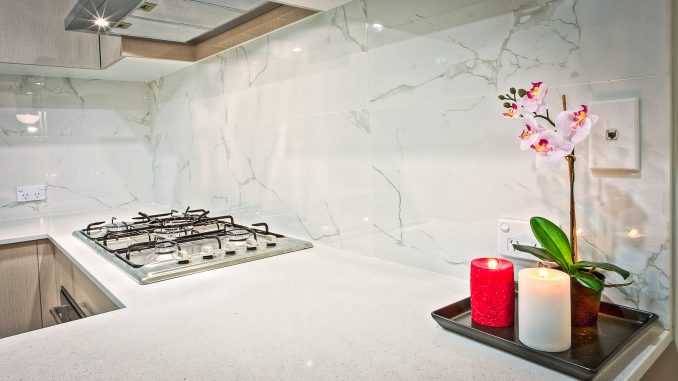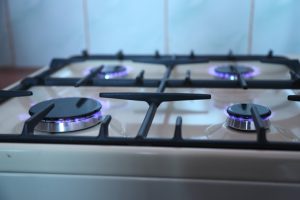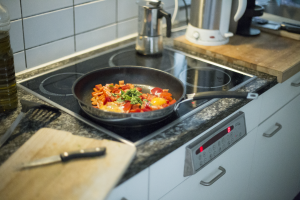
When we think about saving energy, the topic of gas vs electric cooking is one to consider. Although cooking accounts for just a small amount of the energy we use, every drop counts. This article will cover some of the pros and cons of each type of cooking method and attempt to answer the question of gas vs electric cooking, which is more energy efficient?
Gas vs Electric Cooking: The Pros and Cons of Each
 When thinking about gas vs electric cooking, a gas stove may be more energy efficient than an electric stove because they begin heating as soon as they are turned on. When you turn on a gas stove, you instantly get a flame, whereas electric stoves take a longer time to heat up. There are even newer models of gas stoves that conserve more energy than the traditional models by using an electric ignition as opposed to a continuously burning pilot light.
When thinking about gas vs electric cooking, a gas stove may be more energy efficient than an electric stove because they begin heating as soon as they are turned on. When you turn on a gas stove, you instantly get a flame, whereas electric stoves take a longer time to heat up. There are even newer models of gas stoves that conserve more energy than the traditional models by using an electric ignition as opposed to a continuously burning pilot light.
When you consider the fact that electric stoves spend 3 to 4 units of fuel for every single unit of electricity, it seems like gas stoves are a clear winner. However, gas stoves hook up to natural gas pipelines, which puts them at a disadvantage. So what is one to do?
Induction: A Possible Solution
If you are in the market for a new stove, and energy efficiency is key, you may want to consider a model that works by induction. With induction, heating is accelerated through a process that causes the molecules in steel, cast iron and some stainless-steel pots to speed up magnetically. The stove also cools much faster.
An induction stove also transfers more of its heat (90%) directly to the pot whereas a gas stove will lose most of it’s heat in the process, transferring only 35-40%. However, while an induction stove seems like an ideal choice, it does come with a higher price tag and can cost quadruple of what a gas stove costs.
Other Ways to Save Energy While Cooking
 In the battle of gas vs electric cooking, there are some simple methods you can incorporate into your cooking to save energy without spending a lot of money on expensive appliances. For instance, using the microwave is an energy efficient way to heat up food. When boiling water, covering the pot you are using will speed up the process.
In the battle of gas vs electric cooking, there are some simple methods you can incorporate into your cooking to save energy without spending a lot of money on expensive appliances. For instance, using the microwave is an energy efficient way to heat up food. When boiling water, covering the pot you are using will speed up the process.
The pots and pans you use can also make a difference. Flat bottom pans that make full contact with the eyes of the stove will decrease the loss of heat energy. When heating food, use smaller containers that will warm up quickly. Also, be sure to clean the grease catchers under your burners regularly. Clean, shiny surfaces will reflect the heat and reduce cook time.
When considering the issue of gas vs. electric cooking, it seems that gas may be a more energy efficient choice, but every option has its pros and cons. Luckily, there are many options when it comes to saving energy while cooking as well as some simple practices you can adopt in the kitchen to cut down on wasting resources. What option will you chose when trying to conserve energy in your home.

